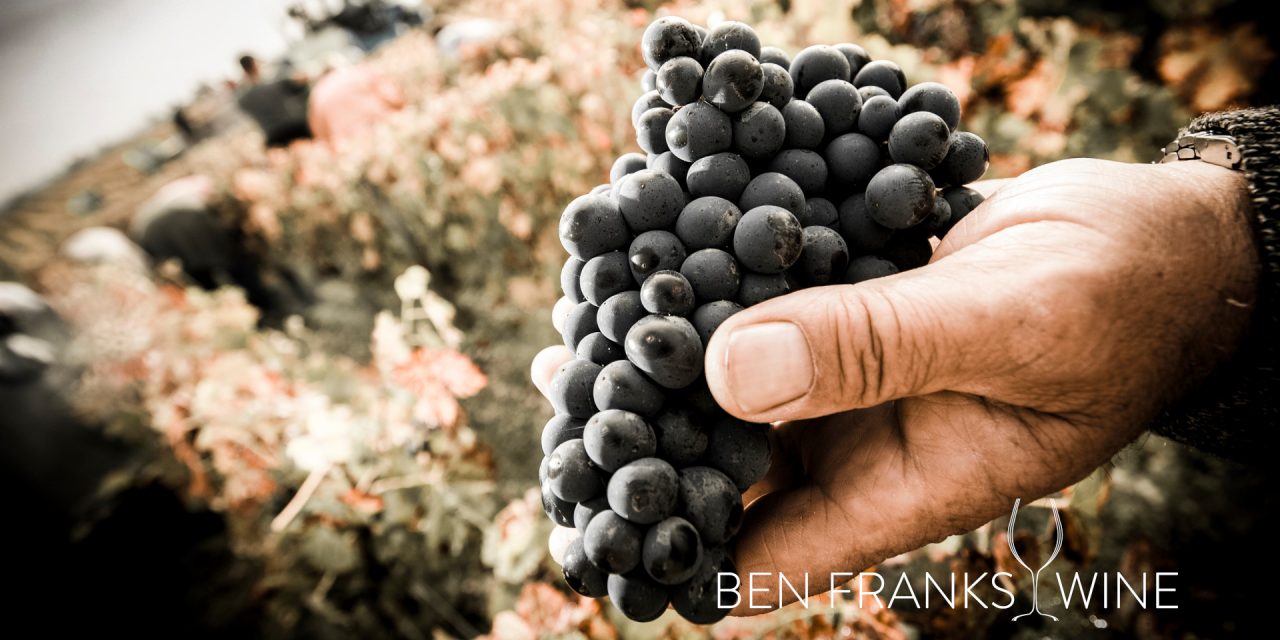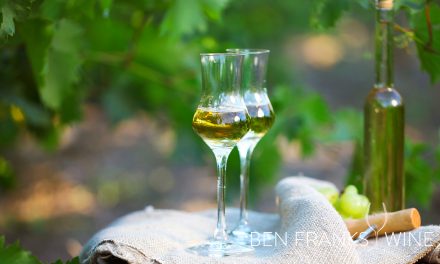Who gets the credit for good wine? Where are all the women when it’s not International Women’s Day? In 2020, when George Floyd was murdered by a police officer, there was an outpour of content celebrating black-owned wineries and vineyards. Where can we buy their wines today?
In Kris Pathirana‘s debut insight for Ben Franks Wine, he says we can do more to celebrate diversity in wine and create real change by putting our money where our mouths are – by actually buying the wines they create.
When I first worked in a vineyard in the Côtes du Rhône, I arrived with all the bright-eyed, bushy-tailed romanticism, as is the purview of someone who has no clue what producing wine actually entails. If it wasn’t naïve enough that I packed for the French Riviera, rather than 5am starts and three-degree weather, I also came mentally prepared for a montage of labour that bore no resemblance to actual labour. Pick a grape. Sip a soupçon of wine. Contemplate existence. Play the Jean de Florette theme wistfully in your head. Contemplate existence again… and rinse and repeat. For anyone who’s had even a passing experience of working in a vineyard, your reactions may reside somewhere between, “Aw, baby, nooo,” and, “What a f*****g idiot.” Both are fair. Everything can be idealised beyond the cognitive horizon of reality when you know nothing about it, like Brexit or country music.
That I found a more valuable experience there, one far more blue-collar and meaningful than the magical mirage I had been hoping for, did little to diminish the romantic lens with which I viewed wine. Over a decade later, this has changed. After sporadic experiences in the wine trade, WSET training, and years of tasting in vineyards all over the world, wine now feels merely (but not merely) the point at which science, art and agriculture collide. In fact, when it comes to wine, only two things matter to me now: pleasure and power.
The pleasure aspect is obvious. Does it taste good? And why does it taste good? I’m a firm believer that knowledge and expertise only enhance experience. However, when welcoming friends into the land of the oenophile, I do not find ‘garrigue’ to be a helpful tasting note, and usage will quite rightfully land you squarely in the heart of Domaine de Bell End. My palate has improved as I have become more learned, and so the experience of drinking wine has become deeper and more rewarding. But wine is not magic in a bottle, it is the culmination of hundreds of people’s skill, care, and labour. It is the efforts and ingenuity of dozens more, who work tirelessly to bring that product to market. It is an entire world, yet a world that seemingly did not get the cultural memo that other industries did. The screenwriting guru Robert McKee once suggested that the key to narrative world building was to lay down the politics of that world. Who profits, who gets the credit and ultimately, who has the power?
“We said we cared. Did we lie?”
Wine exists in a bottle, not a vacuum. It has always rankled me how the landowner gets credit and ownership of the wine, yet the winemaker is somehow relegated to the status of a faceless coder building an app. Yet recently, I have lost track of the number of times I have discovered a fantastic new wine with almost no mention of the winemaker, only to learn through online digging, that said winemaker was a highly experienced, yet predictably less celebrated female. The exception to this takes place on International Women’s Day, when a host of vineyards who previously expressed little desire for the visibility of the key figure in their operation, suddenly, ceremoniously, and often crassly, wheel out a solitary pageant-like figure, in a manner that feels not so much a celebration of women, as a pat on the back for the men who remembered to check a calendar.
This is by no means exclusive to the wine industry. But perhaps the most obvious example of faux inclusivity came in the fallout of the murder of George Floyd. Most can recall the performative empathy of online activists who, that summer, took a day off from posting anti-racist reading lists of books they hadn’t read, to instead post lists and articles platforming black-owned vineyards and black winemakers. In fact, businesses of every stripe rushed to perform the kind of believable ally theatre not seen since the Stoke Amateur Dramatic Society’s all-white performance of The Color Purple.
This was immediately echoed by wine companies, societies, and garden-variety aficionados who couldn’t wait to parrot those same lists to demonstrate their diversity street cred. But while many rushed to congratulate each other (and themselves) for discovering racism and white privilege two days earlier, what proceeded was an online reach-around of such shameless transparency, that the platforming of black businesses became the ice bucket challenge de jour. It was trendy. And trends… fade. Two years later, how many black-owned wineries are on shop shelves and restaurant wine lists? Even in an age where it pays in social capital to have diverse product representation, go into any wine outlet and ask for black-owned wines, and you will receive a blank expression, followed by an uncomfortable shrug as if they’ve been accused of something. A simple Google search will bring up endless listicles of posts about black-owned vineyards… in July 2020. But nothing since; specifically, nothing that demonstrates what the result of all that performative unity was. This is not about blame, or accusations of racism, this is about accountability to who we as a society said we were. We said we cared. We said it was important. Did we lie? Or did we just forget?
Yet it isn’t even being discussed. We see many visual examples across the wine industry in magazines, on billboards and online, but in reality, the only thing that has changed are the colour of the models drinking the wine, not the colour of the people whose wine we buy. It is strange that a great many experienced and brilliant people in the wine trade, who know everyone and everything under the Tuscan sun, don’t know who André Mack is. Who hasn’t heard of Donae Burston? And there’s those that haven’t even tried the wines of Maison Noir, La Fete du Rosé or Fly wines… or know that I just made that last one up.
The goodwill of that fateful summer has translated into precious little. Change is not measured in engagement; it is reflected in money and opportunity. While there has been a departure to make wine less stuffy, democratising the wine industry will take more than tattooed trust fund kids getting money from their parents to start wine businesses, while wearing slides in winter and slinging overpriced Pet Nat to the sounds of Cold War Kids. The one genuine difference in wine over the last few years is that one set of exclusivity has been replaced by another; a too cool for school, ‘you can’t eat with us’ pretentiousness, wielded by overgrown man-children who could probably do with being stuffed in a locker. Like everything, it is the illusion of progress. The players remain the same, they’re just wearing different costumes.
The tragedy is the moment may have already passed. What was once politically inconvenient to remain silent about, and socially convenient to speak out, has slowly reversed. It did not take long for the right to weaponise the term ‘woke’ just as they did ‘political correctness’ in the nineties. Mostly by deliberately confusing people as to what it actually means. Now, any efforts to promote women or black or brown businesses are met with instinctive suspicion and even outrage; to the extent that grown men who’ve never even watched Doctor Who, can now have a collective stroke over the plausibility of casting a gay, black man as the titular character. A character who, lest we forget, is a fictional, face-shifting timelord who jumps through time and space from the comfort of a public telephone. Which is ironic given that the least believable part of the show is that the Doctor has time-travelled for millennia, without someone stumbling out of a Wetherspoons, ten Stellas deep, to piss in his telephone box.
The wine industry can and must do better. If not, then everyone needs to collectively admit that the platforming of two summers ago was all for show. That the extent to which we are willing to seek out wines from places and people hitherto less represented, goes only as far as posting an empty black square. Nobody is looking for special treatment or a spot on a wine list that their product does not merit. But everybody wants a shot. Fortunately, there has never been an easier time to seek out and discover black-owned vineyards. If you don’t know where to start, you’re in luck… there’s about two million lists online that are long overdue a read.
A wine can develop in the bottle over decades. We need to move a little faster than that.






